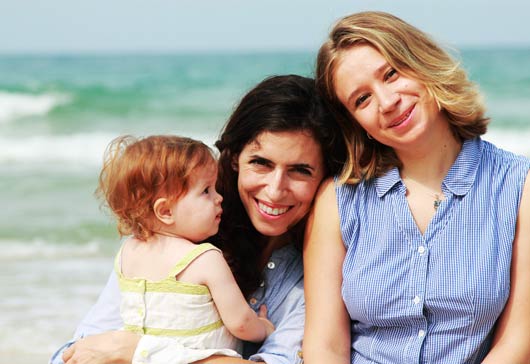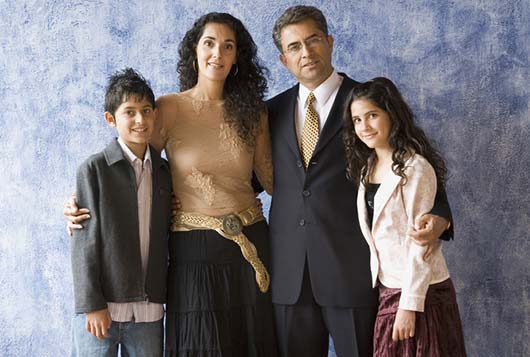
Parenting is hard enough. Add the same-sex component, and things can get complicated. With a healthy dose of awareness and open communication, many of the unique issues faced by gay parents aren’t so hard to handle. In fact, according to a recent Huff Post piece, “some believe that gay parents tend to be more motivated, more committed than heterosexual parents on average, because they chose to be parents,” says Abbie Goldberg, a psychologist at Clark University in Massachusetts who researches gay and lesbian parenting. “Gays and lesbians rarely become parents by accident, compared with an almost 50 percent accidental pregnancy rate among heterosexuals, which translates to greater commitment on average and more involvement.”
These 10 Laws to Live By reminds gay parents that they’re not alone, and that a supportive community is but one click away.
1. Create a social network with other gay parents.
Since most of us were raised with the traditional parent model, it’s not always easy for children of gay parents to feel “normal”. When you create community of friends that includes other gay families, your kids can see that there are other families like yours—giving them that sense of belonging that’s so crucial to their self-confidence and identity.
2. Talk to teachers and daycare providers about your sexuality.
Your kids spend half their lives at school, being influenced by their peers and teachers. By being up-front with teachers and daycare providers, you avoid awkward conversations at PTA meetings, and you can enlist their help in protecting your kids from any potential bullying.
3. Be open with your kids about your same-sex partnership.
What’s the point of being in a loving relationship if you have to keep it from your children? Honesty really is the best policy. As far as when to speak up, all children are different, and some mature faster than others. But it is safe to assume that children today have earlier recognition and understanding of reality than children of a few decades ago. Be prepared to tell explain your relationship to your children as soon as you feel they are able to understand.
4. Be aware that your kids may face prejudice and prepare them for it.
Don’t sugarcoat the harsh realities that can often come with being a modern family. It’s no mystery that kids can be mean, especially when they perceive that someone is different in some way. By prepping your own kids for the potential cruelty of the world, you can also arm them with the power to respond with maturity and finesse.
5. Be prepared to end friendships with people whose intolerance was okay for you to deal with…but not so okay for your kids.
By severing ties with unsupportive relationships, you clear your world of negative forces, but you also shield your child from having to encounter intolerance before they are ready.
Read Related: Gay as the New Normal
6. Always keep the lines of communication open with your kids. Encourage them to ask questions and try to answer honestly.
Even after you have been honest with your children about your sexuality and life choices, remember that they are still, after all, kids—and will have all sorts of questions as they get older and begin to grasp the uniqueness of your situation. Make sure they know you are there to listen, lend emotional support, and answer whatever questions they may have. Hold no taboos.
7. Figure out early-on what you want your kids to call you.
Since it’s not so obvious who’s called Mom and who’s called Dad, it’s a good idea to give some thought to how you want your children to address you. Some couples might want a clear sense of roles as parents; while others might be comfortable having their kids call them by their first names.
8. Be sensitive to the fact that your kids may need to take time explaining your family dynamic to peers, and that’s ok.
While coming out might have been the single most liberating moment of your life, you have to consider that it may take some time until your child is able to explain to others how your family works. Remember the challenges you faced when your journey began, and cultivate a sense of empathy for your kids, who might be too young to fully comprehend (and be okay with) every aspect of your situation.
9. Always make your kids feel unconditionally loved.
The one variable above all else with the power to strengthen families—is love. No matter the obstacles that may spring up, when your kids feel unconditionally loved they are empowered, self-assured and ready to take on the world.
10. Same-sex parenting is surprisingly similar to traditional parenting.
Leave it to Ellen DeGeneres to sum up the truth about just how universal all parenting really is: “I was raised around heterosexuals, as all heterosexuals are, that’s where us gay people came from…you heterosexuals.”
Editor’s Note: This post is brought to you by HoneyMaid, and their efforts to showcase the many facets of modern American family life.












